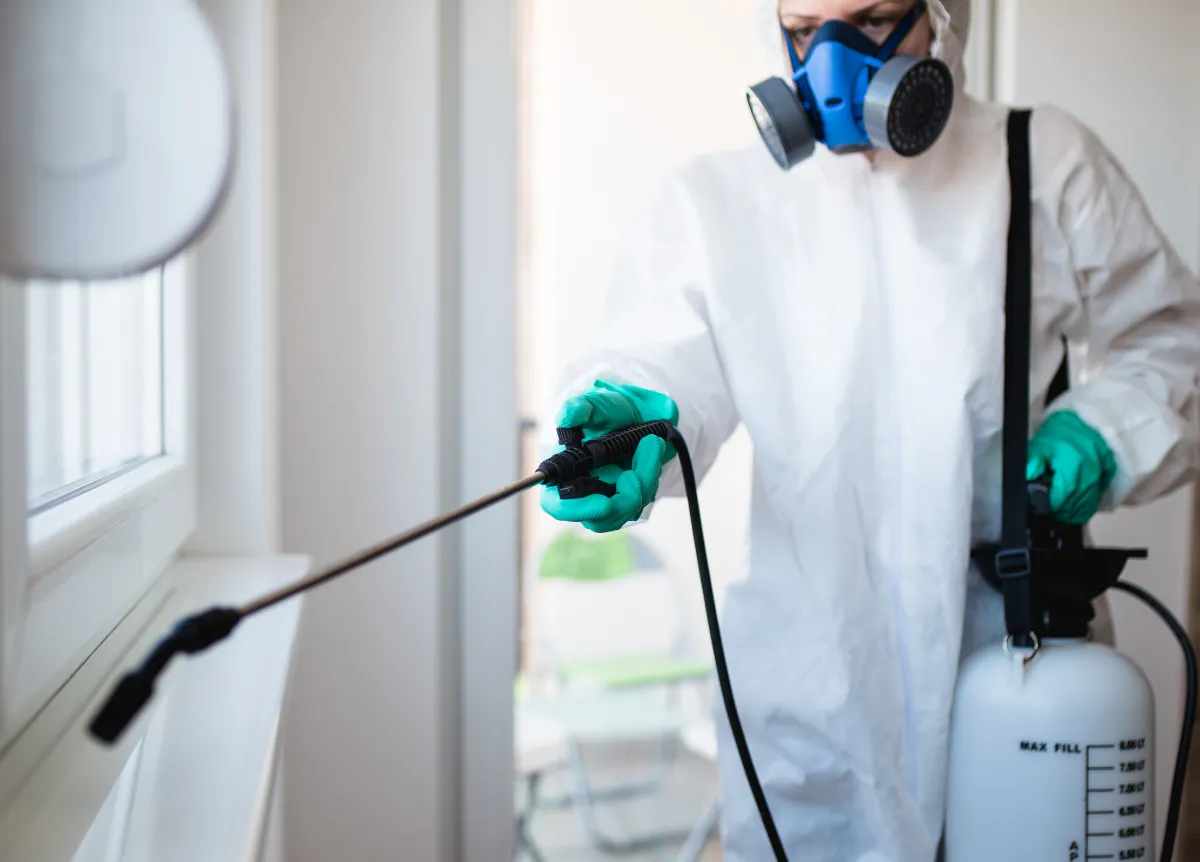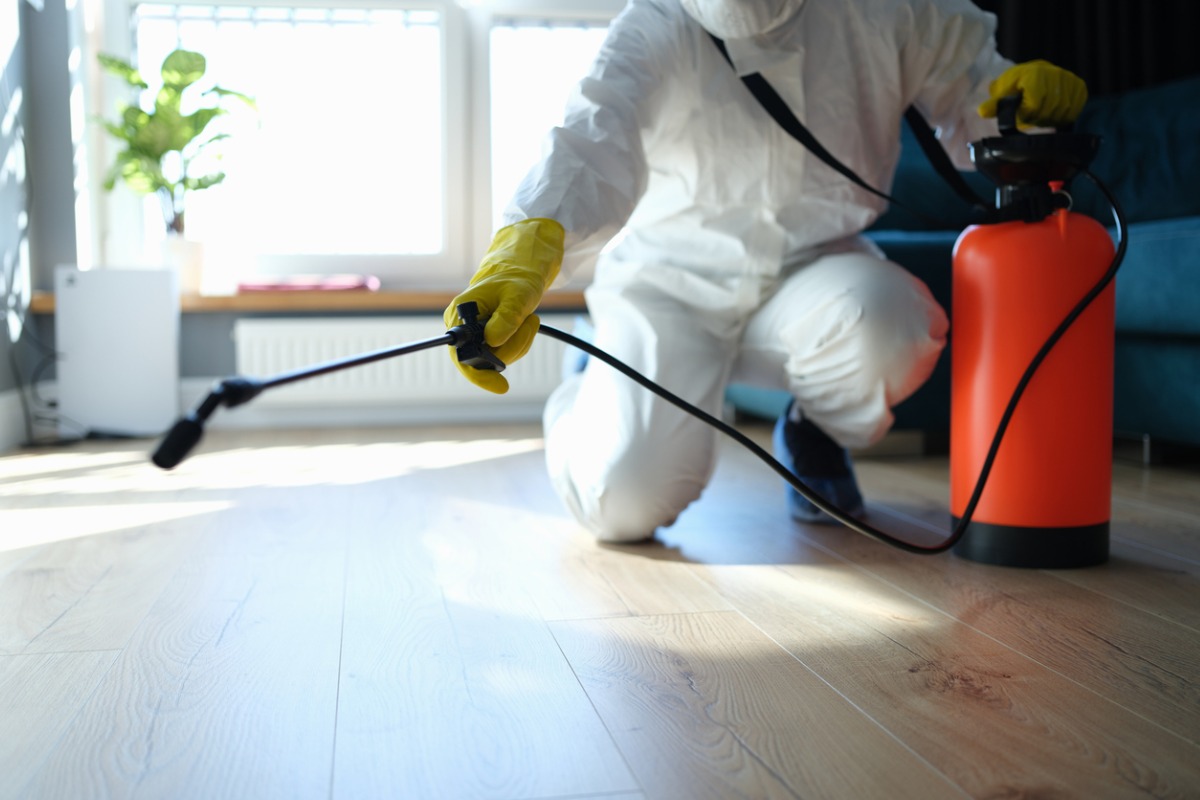What Does Pest Control Do?
Table of ContentsHow Pest Control can Save You Time, Stress, and Money.3 Easy Facts About Pest Control ShownExcitement About Pest ControlGetting My Pest Control To Work9 Easy Facts About Pest Control Shown
Securing gaps likewise provides air loss, hence saving money on energy prices. Ensure irrigation is not directed at the walls of the home. Water (wetness) is considered a conducive problem that will urge insect infestations and can likewise lead to poor air high quality inside. Eliminate tree and/or bush branches that are touching the exterior walls or roof covering of a home because pests, including rodents and ants, frequently utilize them to locate a means right into the home (Number 6).
Get rid of or frequently clearing water-holding containers that offer insect reproducing sites. Check the within your home and removing locations where pests can conceal and breed inside your home. Eliminate cardboard boxes and securing books and various other paper products in plastic covered containers. Keep food in secured containers, including family pet food.
Once a bug has been managed, it does not mean the work of parasite control has ended. Bug control ought to be thought of as a part of regular home upkeep, particularly in states like Florida experience heavy bug pressure. Consistently employing a preventative method to pest control making use of surveillance can save money and stop damage to your home and the items saved within.
Grass and ornamentals (L&O). Fumigation. Business are required to have a licensed operator in each of these classifications if they are supplying these solutions. What is the "qualified driver?" The licensed operator is a person who has met the state requirements to practice bug control (Pest Control). Qualified drivers have to pass a state examination in a particular category of insect control.
6 Easy Facts About Pest Control Shown
The accredited driver in-charge is accountable for the daily procedures at the place of the parasite control business. This individual is accountable for selecting the strategies and products utilized in servicing your home.
What are the needs to become a professional? After being hired by a bug control business, the certified operator in-charge has up to one month to get a recognition card for the new specialist with FDACS. Within six months of hire, the professional is required to have at the very least 40 hours of documented training.
The other hours remain in undefined topics within the groups of general home insects, termites and wood-destroying organisms (WDO), and look at these guys yard and decorative parasite management. After the initial training, the specialist is needed to have 2 hours of training each year (Pest Control). Records must be maintained by the company and available to FDACS for evaluation upon request
Not known Facts About Pest Control
Right here are some of the key advantages of this approach: Single parasite control solutions are created to deal with a certain bug problem available. It's perfect for those who are managing a solitary, isolated problem and desire a quick resolution. Oftentimes, a single service is more cost-effective than a lasting bug control plan.
If you're dealing with a parasite emergency situation, an one-time solution can supply immediate relief. Pest Control. Parasite control specialists will act to eliminate the parasites right away. There are no contractual responsibilities or recurring settlements connected with a single service. As soon as the insects are gone, the solution is total. A pest control plan, on the various other hand, includes an ongoing connection with a pest control service provider.
Here are the crucial attributes and benefits of bug control strategies: Insect control prepares deal ongoing, year-round security versus a variety of insects. have a peek at this website They are optimal for homeowners who wish to protect against infestations and maintain a pest-free atmosphere. These strategies usually entail set up gos to from expert parasite control specialists that inspect, treat, and monitor your residential or commercial property throughout the year.
These sees are typically set up on a monthly, quarterly, or annual basis, depending upon the strategy. Bug control strategies are aggressive in nature. They aim to find and resolve pest issues before they become full-blown infestations. This can conserve you from managing more comprehensive and costly problems down the line.
The Basic Principles Of Pest Control
By spending in a pest control plan, property owners get peace of mind, understanding that their residential or commercial property click here to read is shielded year-round. The choice in between an one-time parasite control service and a bug control strategy mostly depends on your special situation.
Nevertheless, if you're seeking long-term avoidance and comfort, a pest control plan is a sensible financial investment. Consider elements such as the kind of parasites you're handling, your place, your spending plan, and your lasting goals for insect management. It's commonly an excellent concept to speak with a trustworthy pest control business to discuss your choices and get specialist advice in making the right choice for your home.

How Pest Control can Save You Time, Stress, and Money.
The Home Shield Pro plan is a full-service choice for bigger properties starting at 3,000 square feet., Ticks, Fleas, and Stinging Bugs.
Similar to the various other plans, the Home Shield Full offers year-round security from bugs, consists of exterior and interior assessments and treatments, and therapies for outdoor insects like mosquitoes, ticks, and fleas. It likewise stops termites from preying on and damaging your home!: Nuisance ants, Carpenter ants, Centipedes, Cockroaches, Earwigs, Millipedes, Mice, Silverfish, Spiders, Fire Ants, Mosquitoes, Ticks, Fleas, and Stinging Insects PLUS Termites.